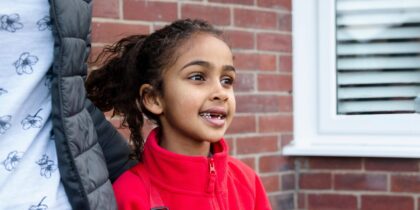A review of recent evidence into children and young people’s mental health
Lorraine Khan
On average, children and young people with mental health difficulties go ten years between first becoming unwell and getting any help.
Missed Opportunities finds that mental health problems are common among young people (affecting one in ten, or an average three in every classroom), but that awareness is poor and most attempts by parents to get help are unsuccessful.
Providing a comprehensive overview of mental health from ages 0-25, the report highlights that young people with mental health difficulties can face at least a decade between first becoming unwell and seeking or getting help. This decade of delay can see problems multiply, eventually escalating into a crisis. Moreover, whilst three-quarters of parents whose children are experiencing mental ill-health seek help, only one-quarter of children receive help that is likely to be effective.
Key points
Lorraine Khan, author of the report, explains the findings in a number of YouTube clips which you can watch below:
You can also watch clips of:
- Lorraine highlighting the key points around mental health for children during early years, primary school, young adolescence and young adulthood.
- Lorraine outlining advice for parents concerned about their children’s mental health
- Lorraine explaining why early intervention for children’s mental health is so important
The review finds that some groups of children and young people face especially high risks for poor mental health. They include children who have been subjected to neglect and abuse, children who are bullied or who bully, and children whose parents have mental health problems. Groups with higher rates of poor mental health also include lesbian, gay, bisexual and transgender young people, those in the youth justice system and those who have been looked after by local authorities.
Missed opportunities highlights that childhood mental health problems can cast a long shadow, well into adult life. However, it also finds that most common childhood mental health problems can be treated effectively, if early and effective help is provided.





